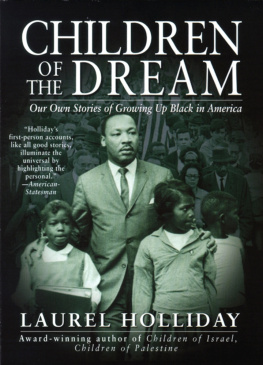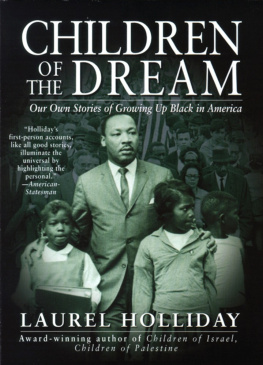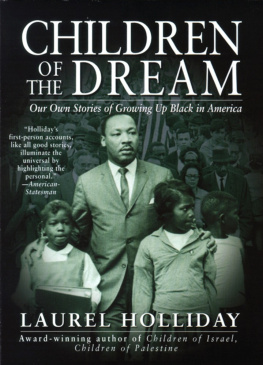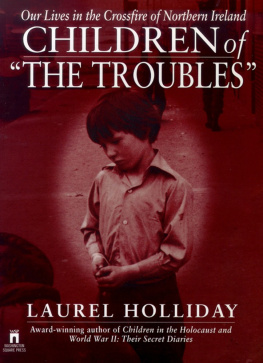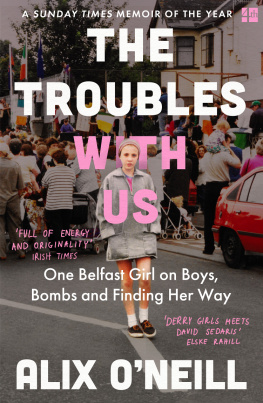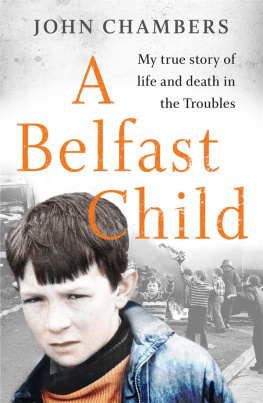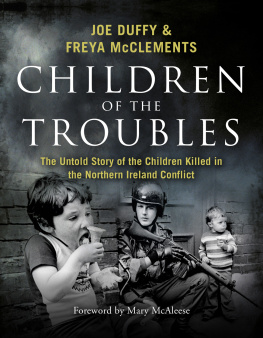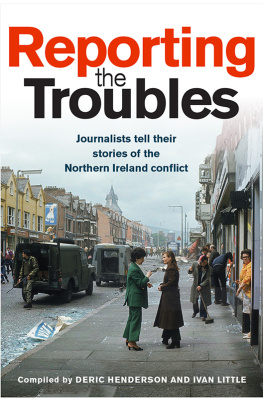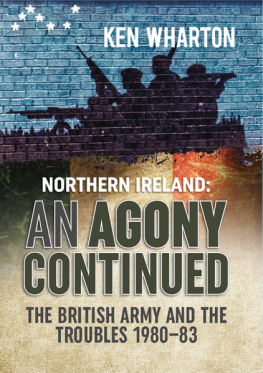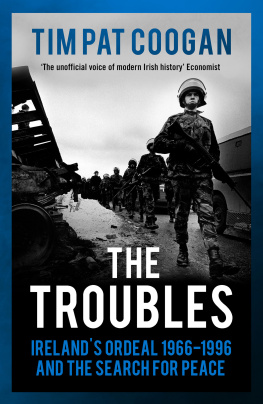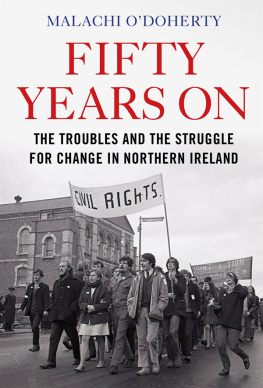Thank you for downloading this Atria Books eBook.
Join our mailing list and get updates on new releases, deals, bonus content and other great books from Atria Books and Simon & Schuster.
C LICK H ERE T O S IGN U P
or visit us online to sign up at
eBookNews.SimonandSchuster.com
We hope you enjoyed reading this Atria Books eBook.
Join our mailing list and get updates on new releases, deals, bonus content and other great books from Atria Books and Simon & Schuster.
C LICK H ERE T O S IGN U P
or visit us online to sign up at
eBookNews.SimonandSchuster.com
Books by Laurel Holliday
CHILDREN IN THE HOLOCAUST AND WORLD WAR II
Their Secret Diaries
CHILDREN OF THE DREAM
Our Own Stories of Growing Up Black in America
CHILDREN OF ISRAEL, CHILDREN OF PALESTINE
Our Own True Stories

A Washington Square Press Publication of
POCKET BOOKS, a division of Simon & Schuster Inc.
1230 Avenue of the Americas, New York, NY 10020
www.SimonandSchuster.com
Copyright 1997 by Laurel Holliday
All rights reserved, including the right to reproduce this book or portions thereof in any form whatsoever. For information address Pocket Books, 1230 Avenue of the Americas, New York, NY 10020
Library of Congress Cataloging-in-Publication Data
Children of the troubles: our lives in the crossfire of Northern
Ireland / [edited by] Laurel Holliday.
p. cm.
Includes bibliographical references.
ISBN 0-671-53738-5
ISBN 978-1-4767-7533-3 (eBook)
1. Childrens writings, EnglishIrish authors. 2. Children and violenceNorthern IrelandLiterary collections. 3. Political violenceNorthern IrelandLiterary collections. 4. Children and violenceNorthern Ireland. 5. Northern IrelandLiterary collections. 6. English literatureNorthern Ireland. 7. English literatureIrish authors. 8. English literature20th century.
I. Holliday, Laurel, 1946
PR8891.N672C48 1997
820.80928209416dc21
96-49217
CIP
First Washington Square Press trade paperback printing March 1998
WASHINGTON SQUARE PRESS and colophon are registered trademarks of Simon & Schuster Inc.
CONTENTS
ACKNOWLEDGMENTS
I would like to sincerely thank all of the writers who submitted their writing for publication in this book. Difficult decisions had to be made and not everyones work could be included, but I appreciated the efforts of each and every one of you and learned much from the stories and poems you sent me.
Heartfelt thanks to all of the writers who met with me in Northern Ireland! I learned so much from you and I enjoyed it thoroughly. Thanks also to the families who invited me into your homes and to the teachers and principals who hosted my visits at the various schools. I will never forget your kindness and hospitality.
And thanks to all the photographers whose work appears in this book, including Cassandra Lindquist, who did the author portrait.
I would like to thank the following people for providing me with background information about the Troubles: Jane Bell, Belfast; Reverend Bernard J. Canning, Scotland; Paddy Bogside Doherty, Derry; Louise Foresman, Seattle; Dominic Gates, Seattle; Nancy Gracey, Belfast; Charles McAleaf, Seattle; Derek McCauley, Derry; Paul Neeson, Kirkland, Washington; Will Pegg, Belfast; Dr. Michael Roe, Seattle; and Jim Watson, Belfast.
The following people have my heartfelt appreciation for helping me to connect with writers in Northern Ireland: Anne Carr, Belfast; Pat Campbell, Belfast; Dr. Michael J. Carr, Derry; Margaret Dolan, Belfast; Francis Donnelly, Crossmaglen, Northern Ireland; Ann Gaughan, Blue Bell, Pennsylvania; Mary Jo Jackson, Northfield, Minnesota; Dan OKennedy, Livonia, Michigan; Joanne Mulcahy, Derry and Portland, Oregon; Miss C. OReilly, Belfast; Ms. Pettigrew, Belfast; Miss S. Simpson, Lisburn, Northern Ireland; Anne Tannahill, Belfast.
Special thanks to Kevin Byers, Portaferry, Northern Ireland, and Dr. Michael Roe, Seattle, for their review of the introduction to this anthology and many helpful comments.
I could not even have begun to put this book together without the help of newspaper editors throughout Northern Ireland. Many thanks for printing my letter and subsequent articles about the book. Thanks also to all the folks at Fortnight who forwarded mail and answered questions from interested writers and to the Irish-American magazines whove let their readers know about this book as well.
As with all of my books, this book owes much to the hard work of librarians, particularly the international network of interlibrary loan librarians. Thank you all! I would also like to thank the Quick Information librarians at the Seattle Public Library, who were always happy to track down some obscure fact for me, and the Ballard Branch librarians, who never shrank from the long lists of book requests I handed them.
Very special thanks to Yvonne Murphy, Librarian for the Northern Ireland Political Collection of the Linen Hall Library in Belfast. Your guidance through the maze of books and pamphlets in a library that long ago overflowed its premises was oh so welcome. (If anyone is looking for a worthy cause in Northern Ireland to which to donateplease consider contributing to the continued existence of this very special and impressive collection.)
I would like to thank John ONeill, of Belfast, for serving as a consultant for this book during its early stages. Just knowing you were only a phone call or fax away really helped.
Many thanks to professor and poet Frank Ormsby, Belfast, and novelist Kathleen Ferguson, Castle Rock, County Derry, for serving as adjudicators for a literary award connected with this anthology.
I am very grateful for the intelligence, the care, and the diligence of my editor, Paul McCarthy, at Pocket Books/Simon & Schuster. He believed in this project from the beginning and has provided expert guidance all along the way. Thanks for letting me try my wings in a country I love, Paul.
Special thanks go to my agent, Sarah Jane Freymann. Just knowing youre working in Manhattan and loving it lets me hide out in Seattle and writeor fly off to Northern Ireland! Thanks for all of your insights about this book and those to come, Sarah Jane.
One of my oldest friends, silent partner, and sometimes personal assistant, Cheri Brown, kept me together through my visit to Northern Ireland. Although youre somewhat invisible here, you know how much I appreciate you.
And finally, heartfelt thanks to Kate, who fed and cared for all my furry, four-legged creatures in Seattle while I was in Northern Ireland, kept a hilarious diary of their beastly antics so Id know what Id missed, and kept the light in the window burning till my return.
INTRODUCTION
I n 1969 animosities between Catholics and Protestants in Northern Ireland escalated into what is called the Troubles, now nearly three decades of violence during which thirty-four thousand shootings and fourteen thousand bombings resulted in the wounding of over forty thousand people and the loss of more than thirty-one hundred lives.
Eyewitness to this widespread violence, the generation that is known in Northern Ireland as children of the Troubles has never known a permanent peace. In this collection of their own true stories, memoirs, essays, diaries, letters, and poems, sixty of them tell what it has been like to grow up in a painfully divided country and what it means to them that, after decades of murder and destruction, there is now a possibility of a lasting peace.
I n September and October 1994, Catholic and Protestant paramilitary organizations in Northern Ireland announced cease-fires in an effort to work out a peace agreement. Sadly, the Catholic paramilitary cease-fire ended in February 1996 with an Irish Republican Army (Nationalist Catholic paramilitary organization) bomb blast in London in which two people were killed. The Protestant paramilitary cease-fire, although still officially said to be holding, has been brought into serious question by what appears to be the sectarian murder of a Catholic taxi driver during the summer of 1996. Although sectarian violence was still an everyday reality in Northern Ireland during the cease-fires, seventeen months without a sectarian murder or bombing was no small accomplishment and many people in Northern Ireland thought it signaled the end of the Troubles.
Next page
